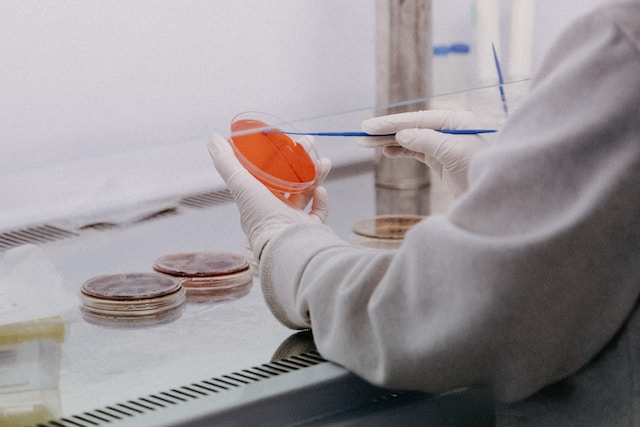In modern biology and medicine, laboratories are considered a cradle of innovation and discovery. Various factors affect the functionality of such research centers, which often enhance our knowledge of the life sciences. These include appropriate utilization of funds, good experimental design, and provision of modern equipment.
This blog will address the power of producing antibodies and explore how it can improve your lab’s capabilities, as well as its impacts on various study sections.
Antibodies: The Foundation of Immune Response
The immune system generates immunoglobulins – specialized proteins in response to any foreign substance, including bacteria, viruses, or any other antigen present. Immunoglobulin is another name for antibodies. These Y-shaped molecules are essential for the body’s defense mechanisms as they recognize dangerous invaders and halt diseases and infections.
Other than that, they are crucial in immune function and also in research. Cellular and molecular biology puzzles are solved using these adaptive tools. Let’s examine the main arguments for why increasing antibody production can revolutionize your laboratory:
1. Advancing Medical Research
One of its noteworthy achievements is the impact of such antibody-producing processes in laboratories in medical research. Researchers employ antibodies to conduct various research on diseases, hunt for potential remedies, and make diagnostic instruments.
Take, for example, cancer research, where some antibodies are designed to target specific tumor markers, which enables the accurate identification of cancer cells. This application has led to the development of targeted therapy and the advent of personalized medicine.
Additionally, because antibodies are fundamental to the body’s immunological response, they may be crucial in the development of vaccines.
By using the Antibody Production Service, scientists can develop vaccinations that imitate the presence of a pathogen without actually causing the sickness by producing antibodies in a lab. Laboratories can aid the production of life-saving vaccinations to understand better how antibodies are made and how they function in immune responses.
2. Diagnostics and Disease Detection
The ability to produce antibodies also applies to diagnostics. In clinical laboratories, immunoassays—a class of diagnostic procedures that employ antibodies to identify particular molecules—are frequently utilized.
Examples include lateral flow assays and enzyme-linked immunosorbent assays (ELISAs). These methods are used to identify a variety of illnesses, from chronic problems like diabetes to infectious diseases like HIV and COVID-19.
Making the most of your lab’s antibody production capabilities can help you create diagnostic tests that are more accurate and focused. Enabling quick response can have a significant influence on early disease identification, better patient outcomes, and lower healthcare expenditures.
3. Customization and Specificity
A considerable degree of personalization is available in antibody manufacturing. Antibodies that target certain antigens or substances of interest can be produced in laboratories. This level of specificity is crucial for research because it enables scientists to plan tests that are particular to their theories and issues.
Producing tailored antibodies enables you to get precise and pertinent information, whether researching a novel protein, a special cellular pathway, or a rare disease marker.
The restrictions of commercially available antibodies can also be overcome with antibody manufacturing. Numerous research facilities have encountered problems with commercially available antibodies’ dependability and specificity. Labs can be more confident in the caliber and effectiveness of the reagents used in their research by creating and generating their antibodies.
4. Drug Development
The pharmaceutical business relies heavily on antibody manufacturing to create new medications. The use of monoclonal antibodies (mAbs), which are created by the same immune cells, has grown in the treatment of many illnesses, including cancer and autoimmune diseases.
The ability of mAbs to target particular molecules or cells within the body makes them extremely useful for treating diseases with a defined target.
The development and production of mAbs have been significantly influenced by antibody production laboratories. As new medications are continually sought to address unmet medical needs, increasing your lab’s antibody production capabilities can contribute to developing novel treatments.
5. Cost-efficiency and Sustainability
Although a large start-up budget for antibody production is required initially, the expenses might be lowered in the long run. Laboratories often use commercial antibodies in their daily routine of research or diagnostics. It’s advantageous for these labs to use in-house synthesis because it makes the ongoing use less expensive.
On top of that, one can also develop one’s antibodies for long-term solutions. Reduction in shipment and packaging demand results in reduced environmental impact that may result from shipping antibodies over long-distance routes. Antibody production is a gift such sustainable labs can exercise in conformity with their beliefs.
Bottomline
The production of laboratory-induced antibodies is invaluable. This essential tool is applied in numerous basic researches, drug development, and medical diagnostics. If you optimize the production of antibodies, then your lab cannot be run similarly since antibodies constitute a crucial linkage between different science activities.
Get the best out of antibody manufacturing in your lab, improve our understanding of biology, create new treatments, and develop better diagnostic equipment. Investing in antibody manufacturing can allow for the expansion of an already impactful influence on medical research and healthcare delivery; enabling personalized antibodies, quality assurance, and cost cuts could go a long way in shaping the future of science and
As science advances, antibody production remains an essential tool for understanding the intricacies of existence and illness, allowing researchers to explore the secrets of life and disease further.







